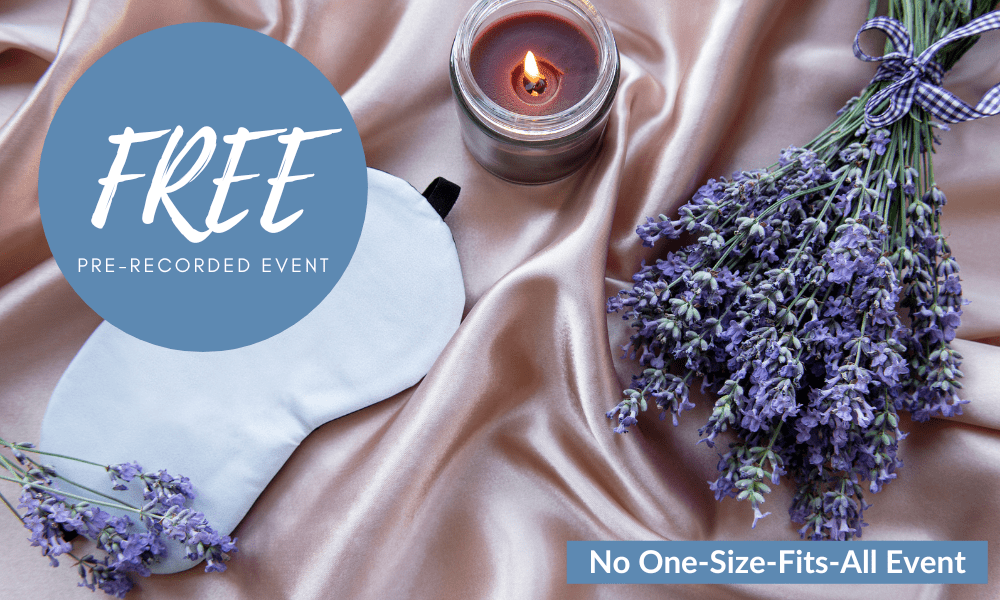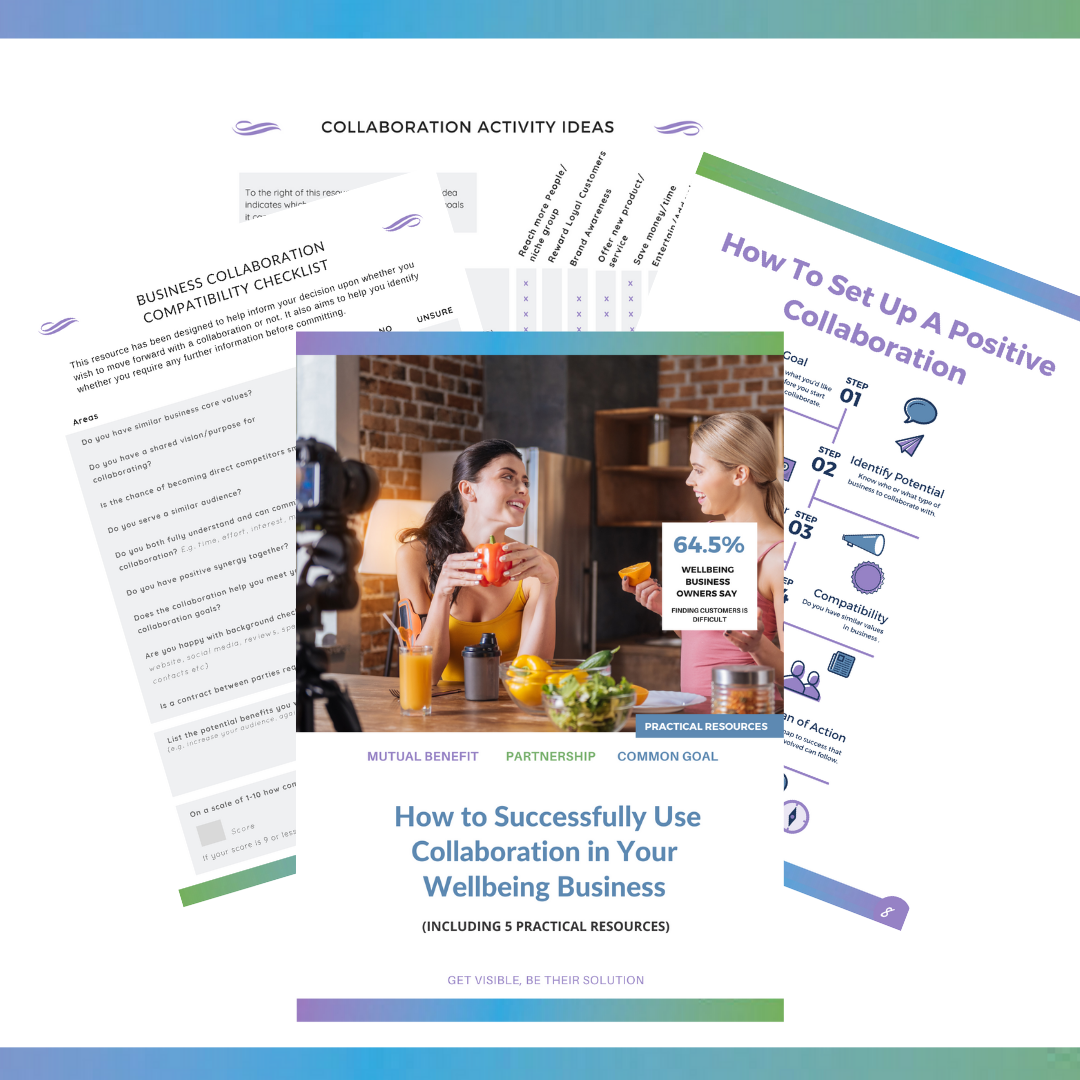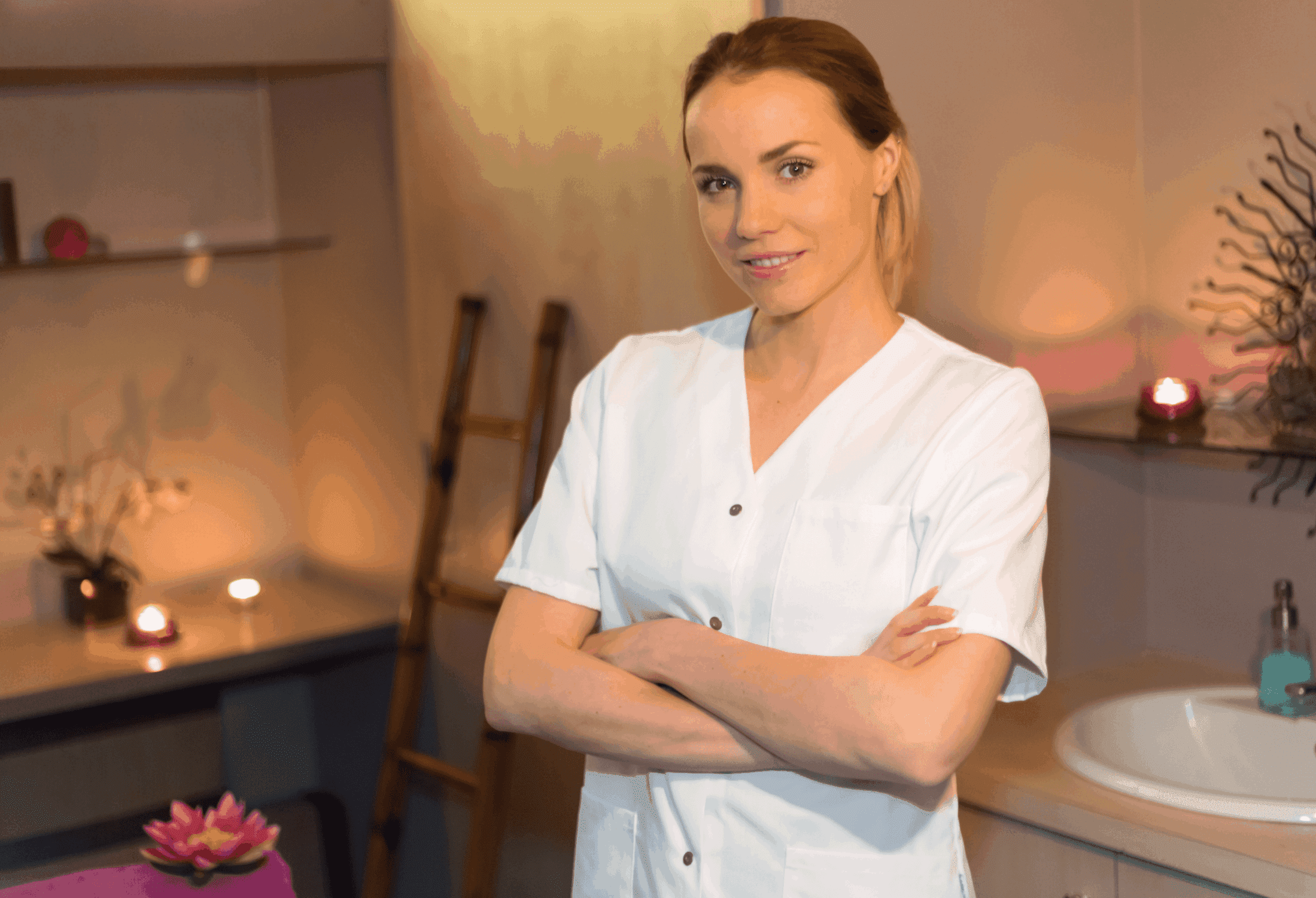When Stress Gets Too Much – 8 Effective Self-Help Ways to Cope (From the Experts)
20th Sep 22
It can be easier said than done to keep stress at bay and prevent yourself from becoming overwhelmed.
Life has a lot to offer and test us with. Between juggling work, family, relationships, and everyday commitments, we can easily become stressed and worn out.
Luckily enough for you we’ve spoken to eight amazing health and wellness professionals who have kindly passed on their simple stress self-help tips to us. So, read on to help regain balance and peace in your life.
1. Apply Acupressure Points to Relieve Stress
Chantal Nogbou, Family Health Acupuncturist at Dragonfly Acupuncture Leeds
I love teaching people amazing self-help Acupressure, using one of many acupressure points. It’s a Chinese medicine modality, healing people for thousands of years. It uses pins or pressure to stimulate or soothe these points to kickstart the body’s own healing mechanisms.
I would love to share with you my Top 3 Acupressure Points to relieve stress.
First, get yourself comfortable and give yourself the time to honour your self-care. Focus on your breathing, slowly inhaling and exhaling.
- Sea of Tranquillity point
Hold this point, located at the base of your breastbone, when you feel tense anxious or irritated. Use your fingertips to hold for three minutes as you breathe in slowly and deeply for instant calm whenever you need it the most.
- Great Rushing or the Happy Calm point
This point is found at the top of your foot, between tendons coming up from your big and second toe. Use the heel of the other foot to apply static pressure releasing tension.
- Outer Pass and Inner Gate, points combo.
Hold these points together, located three finger widths below the wrist crease, on inner and outer wrist for 2 minutes to quieten mind, focus breathing, relieve stress and frustration.
If you’d like to learn more about acupressure and its therapeutic benefits for relieving stress Chantal would love to help over at Dragonfly Acupuncture Leeds.
2. Destress with the ‘Shoulds’ Exercise
Clare Walters, Focussed Mindfulness Coach at Absolute Specialists.
Take 10 minutes to write out your stressful thoughts. Capture all the ‘should’ thoughts you have about someone you are finding challenging and stressful: ‘they should be more understanding/kinder/more communicative…’ continue, capturing all the judgements.
It is OK, in fact helpful to have a bit of a foot stomping rant about them.
Now write out the answers to these questions:
- How do these should thoughts make me feel and what do they cost me?
- Are they likely to change?
- How would I feel if I dropped the ‘shoulds’ and just accepted that they are as they are, took my power back and dealt with the situation as it is, not as how I think it ‘should’ be.
Now turn your attention to yourself. What are the self-judgements that cause you stress? For instance, ‘I should be better/kinder/more in control…….’ continue, capturing them all.
Now imagine a good and wise friend is reading what you write. Write out what they would say to you about these self-judgements. Now tear up the paper and continue your day.
Most stress is caused by our thoughts. The great news is that we can control them. This simple exercise is a great start.
If you’d like to explore more mindfulness methods to minimise stress reach out to Clare over at Absolute Specialists.
3. Healthy Eating to Combat Work Stress
Jane Dyer, Workplace Wellbeing Concierge, Consultant, Coach at Tudor Rose Workplace Wellbeing Consultancy.
Stress can be caused by many work and non-work-related factors. When we begin to feel stress, we can very easily reach for that biscuit tin for those quick energy, sugar filled snacks. Yet, what about those foods that combat the onset and reduce the effects of stress?
Incorporating certain vitamins and minerals to our diet throughout the day can help us better cope with the demands of the day.
- Vitamin B to stabilise our mood by turning protein into stress busting neurotransmitters
- Protein helps us balance the building blocks in our brain
- Magnesium limits the stress hormone cortisol
- Selenium is a powerful antioxidant and reduces stress
- Zinc helps keep the immune system, which can be less effective with stress, stay healthy
To help, why not try incorporating these foods into your daily diet, packed lunch, or snacks at work:
- eggs
- yogurt
- Vitamin C
- Cacao
- Sunflower seeds
- Avocado
- Pecan nuts
- Peas
- Coconut
- Beetroot
- Chickpeas
And don’t forget to keep hydrated throughout the day.
Taking time to be conscious of what we eat and savouring every bite can also give us the time and space to relax and be calm. Think about eating in a calming environment, away from the desk.
Keeping a food mood diary can help identify any links between our stress levels and types of food you are eating. If you notice a pattern, you can make changes.
Taking these simple steps, can help us reduce our stress levels and reduce any associated risks.
If workplace stress is affecting, you and you’d like support reach out to Jane at Tudor Rose Workplace Wellbeing Consultancy.
4. Sounding the Stress Away
Ruby Merrick, Sound, Colour and Energy Healer, Redstone Healer.
As a Sound, Colour and Energy Healer I have had the opportunity to support many people with their inner healing. Drumming is one tool I often use. It is a form of healing that uses vibrations to heal the body, mind, and spirit. You don’t always need to have a physical drum to reap the therapeutic benefits.
A useful tip I love to share with my clients to help combat stress is for them to know and remember . . .
‘You are the drum
You’re the heartbeat
You are the baby belly breath
When stress kicks in, place your hands on your belly. Drop back into the breath. Slow and steady. Once calm, bring hands to heart and gently drum your hands to the heartbeat.
You are the drum’
With this simple tip feelings of relaxation and wellbeing are soon restored, and any stress quickly melts away.
If you’d like to learn more about the benefits of sound healing to help minimise stress levels, you can reach out to Ruby over at Redstone Healer.
5. Alexa Smart Speaker Technology
Caroline Laurenson, Founder of Kindspace
Sometimes life can be overwhelming. It’s not uncommon to put aside our own needs. When it comes to destressing, you might find yourself grabbing for your smartphone as a quick fix or distraction.
Kindspace harnesses Alexa smart speaker technology to encourage you to pause with purpose. No temptation of notifications. Why not try taking even a few minutes out of your day to do a breathing exercise.
Breathing is a bodily function that we take for granted, but it is extremely powerful at helping to lower stress. One of our favourite exercises is square breathing or box breathing.
It’s easy to learn as each of the four parts of the activity are the same duration, this is where the name comes from.
- Breathe in through your nose while counting to four slowly.
- Hold your breath while counting slowly to four.
- Begin to slowly exhale through your nose for a count of four seconds.
- Now wait for four seconds, before repeating with a new in breath
Repeat this cycle for at least two minutes. Check out of life’s busy bubble to check in with yourself. Just say “Alexa, open Kindspace” and calm, creativity and joy lie ahead.
If you’d like to create your own kind space using Alexa smart speaker technology, you can learn more over at Kindspace.
6. Yoga Breath Work
Karen Pullan, a Psychotherapist from Karen Pullan Yoga and Wellbeing.
To help reduce the levels of high and constant stress in our body we can practice yoga. There are several postures in isolation which can help, though you cannot beat a regular yoga practice to keep everything in tip top condition.
I teach Dru yoga which is a gentle and meditative form of yoga. It focuses all movements from the spine and a strong & healthy spine is key to helping us with all the other stuff which goes on in our life.
A regular practice can include breathing, meditation, and relaxation as well as beautiful postures and sequences. The practice encourages mental and physical relaxation which in turn helps reduce stress and anxiety.
One keyway to help deal with stress is a breath practice.
- Start by sitting somewhere quiet.
- Take a deep breath in and out and then focus on your breathing.
- Start to count to 4 on the in breath and 4 on the out breath.
- Count as slowly or as quickly as you need to.
- Add a short pause for a count of 1 between the in and out breath.
- Gradually, start to make the out breath longer than the in breath i.e., in for 4, pause for 1, and out for 6, pause for 1.
- Continue until you can make an out breath for a count of 8.
This breath practice works to connect to your parasympathetic nervous system and allows for your rest response to kick in. Do this practice whenever you feel stressed.
If you’re looking to learn more about Yoga and breath work to help counteract stress and invite relaxation, reach out to Karen over at Karen Pullan Yoga and Wellbeing.
7. Crystals To Help Restore Balance
Sharon Hadley, Crystal Mentor at NKN Crystal Creations
There are a number of crystals that can help with stress, but did you know that the shape of the crystal you use can make a difference too?
Thumb stones (also known as worry stones) are polished, oval crystals with an indentation in one side.
Small enough to fit in a pocket you can discreetly fiddle with the stone to further calm stress. The indentation is the perfect size to fit a thumb in, by stroking the crystal with your thumb you are activating the throat and crown chakra.
The throat chakra is connected to communication and emotion with the crown chakra connecting to our spiritual selves.
Crystals linked to these chakras that help with stress include:
- Rainbow fluorite
- Labradorite
- Amethyst
- Sodalite
Other crystals to consider are:
- Those connected to the base/root chakra such as black obsidian and black tourmaline
- Those connected to the heart chakra such as rose quartz and green aventurine
If you don’t have a worry stone any of the crystals mentioned worn or carried will help in reducing the symptoms of stress leaving you feeling calmer and more able to cope.
If you would like to learn more about how Crystals can be used to manage stress be sure to reach out to Sharon over at NKN Crystal Creations.
8. Water and its Healing
Karen Thompson, Complementary Therapist & Healer at Amidst Art & Healing
Water the elixir of life, keeping all things flowing. This element is a crucial liquid for all of us. Whether you are a water sign or not – everyone has a thirst for hydration of the mind, body, or soul.
My tip to help minimise stress is to drink more water, be near water to de-stress and exercise in water!
Reminiscing over my life and how water has played a major part in my journey, I can honestly say home, canals, and rivers close by have been a constant source of serenity, joy, and nourishment. We can drink, swim, relax and alter our mood in an instance, with this simple yet essential commodity we call water. Drink plenty.
Being surrounded by water holds a magical feeling and as I’ve grown older, I realise it is ‘My Happy Place’.
Beauty and a sense of belonging – a place to be.
Canal – what does this mean?
A place to dream or so it may seem.
Nowhere on Earth can match this place,
A sacred, solitary special space.
©Copyright belongs to Karen Thompson. Permission to copy granted to Wellbeing Umbrella.
If you’d like to learn more about the healing benefits of water to help bring back calm and balance, you can reach out to Karen over at Amidst Art & Healing.
Take Home Message for Reducing Stress
Although stress is an unavoidable part of life, be sure to act and prevent it from having a major impact upon your overall health and wellbeing. The good news is there’s plenty that you can do to help yourself! So, on that note, which tip(s) above best suited you and will help you bring calm back into your life?
Hopefully at least one of the eight fabulous solutions offered by our wellness experts will have resonated with you. Everyone is different and no one size fits all, so it’s important to find what best suits you.
If you’d like to explore and find further solutions to help manage stress, check our wellbeing platform that shares many solutions from dedicated wellbeing professionals who have walked a mile in your shoes.
Disclaimer: The information contained on this Site is provided for general educational purposes only and is not intended to diagnose, treat, cure, or prevent any disease or health condition. Please consult a qualified health care professional to diagnose your health condition and prevent self-diagnosis. We do not dispense medical advice or prescribe or diagnose illness. Read full medical and health disclaimer.

































